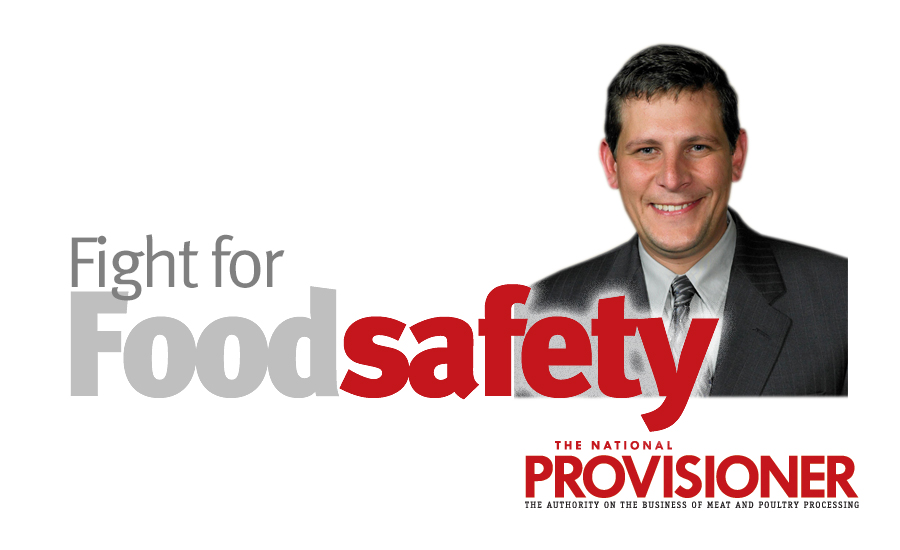As a food-safety lawyer, I spend a significant portion of my time analyzing the actions of FSIS and trying to figure out what’s coming next. In the past, while attempting to accurately predict which new policies the agency will likely pursue in the coming months and years, the most effective tools I have found in most cases have been my raw instinct and my “best educated guess.” When it comes to the new policy initiatives FSIS intends pursue in the next five years, however, FSIS has taken much of the guess work out of the equation.
Indeed, FSIS has just unveiled its five-year strategic plan that details the agency’s goals for the next 60 months. In the 64-page document, FSIS announces that it will pursue three broad goals relating to its food safety mission. The three goals articulated by FSIS are to: (1) prevent foodborne illness and protect the public health; (2) modernize the federal inspection system, FSIS policies and the use of scientific approaches; and (3) achieve, in the agency’s words, “operational excellence.”
FSIS describes its first goal, to protect the public health, as most important. Every day, more than 9,600 FSIS employees work to ensure the safety of the U.S. meat and poultry supply. Moving forward, the agency plans to enhance its effectiveness by driving establishments to better comply with food-safety statutes and regulations. FSIS plans to accomplish this goal by focusing additional inspection resources on problem establishments, increasing microbial sampling of raw products, regulating food safety and Listeria control in retail delis, and enhancing the agency’s outbreak response capabilities. Thus, moving forward, both meat and poultry and retail establishments should be prepared for additional regulatory scrutiny.
FSIS’s second goal, to modernize FSIS inspection and use science is, in essence, designed to help the agency meet its primary goal of protecting the public health. According to the agency, FSIS plans to use enhanced field-screening capabilities and whole genome sequencing to help it effectively and expeditiously respond to (and quickly contain) emerging foodborne illness outbreaks.
Finally, the agency’s third goal, to achieve” operational excellence,” is designed to support FSIS’ efforts to modernize and eradicate foodborne illness. Here, FSIS intents to invest additional resources in the recruitment and retention of mission-essential personnel, enhance existing training, create a more diverse workforce, and identify ways to become more streamlined and efficient. (For further insight on all three goals, read Brett Schwemer’s Regulations & Legislation column on the following pages.)
Moving forward, we will continue to watch with interest as FSIS begins executing its strategic plan. Although we can still speculate about how quickly and how aggressive the agency will work to accomplish its goals, what is certain is that the agency is becoming more focused than ever on protecting the public health, reducing foodborne illness, and strengthening its food-safety focus. NP







